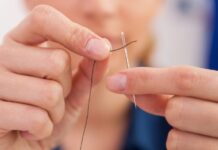The immune system of newborns is still developing, and exposure to certain natural bacteria is necessary to help their bodies build immunity.
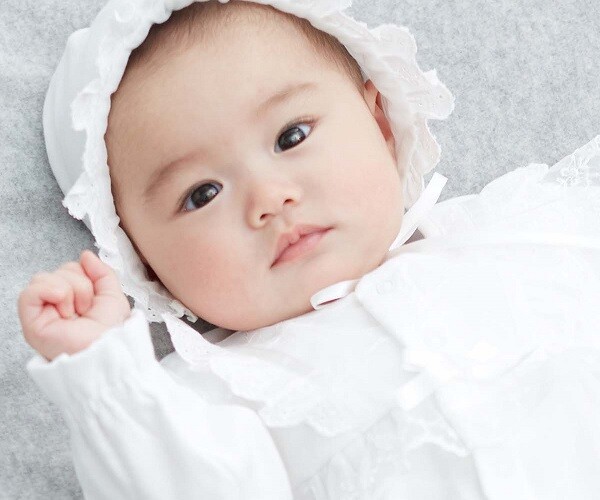
Keeping babies excessively clean can lead to a lack of beneficial bacteria, increasing the risk of allergies or autoimmune diseases in the future. Some studies suggest that children raised in overly sanitized environments may have a higher risk of developing conditions such as asthma and eczema.
Additionally, certain parts of a baby’s body, such as the navel, require a certain level of natural moisture to stay healthy. Over-cleaning can dry out the skin and cause irritation, making the baby uncomfortable and leading to other skin issues.
Therefore, experts advise that parents pay extra attention to these four body parts and maintain a balanced hygiene routine without going overboard.
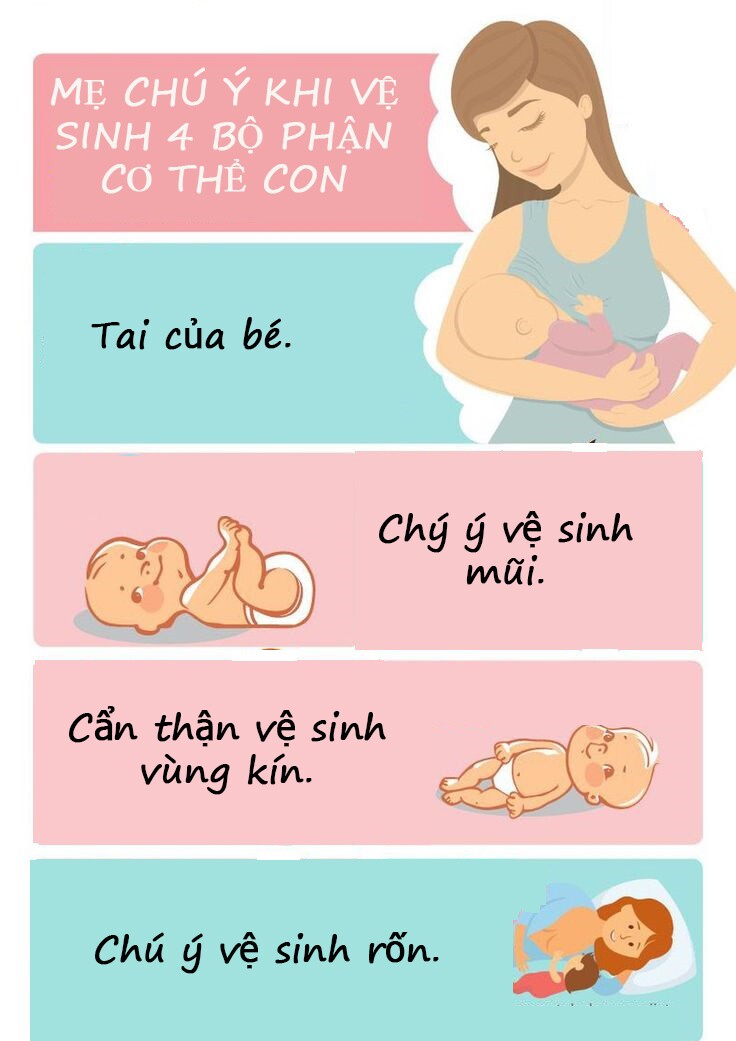
Image Source: HaiBunda.

Baby’s Ears
Parents often feel the urge to clean their baby’s ears when they spot earwax. However, earwax serves a protective purpose. It not only prevents dust, small insects, and other debris from entering the ear canal but also acts as a cushion to minimize sound impact and protect against mechanical injury. Additionally, earwax contains natural antibacterial compounds that help prevent infections.
Frequent ear cleaning can damage the delicate skin of the ear canal and even affect hearing. Using tools like cotton swabs to remove earwax can inadvertently push the wax deeper, causing blockages and discomfort or pain for the child. Moreover, excessive interference with this natural process can disrupt the moisture balance in the ear canal, leading to dry skin and inflammation.
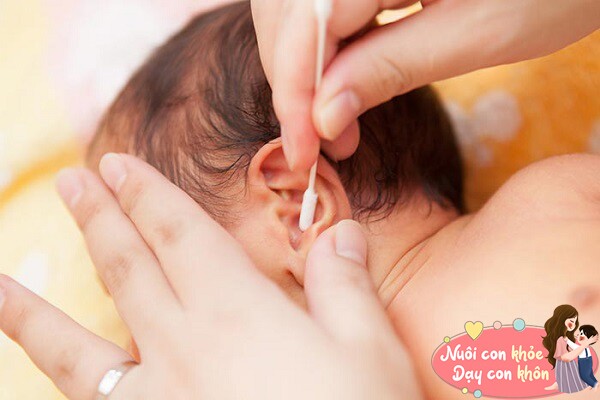
Careless ear cleaning can damage the delicate skin of the ear canal.
In general, as long as the baby doesn’t experience any discomfort in their ears, there’s no need for excessive cleaning. Earwax will naturally work its way out as the baby chews, talks, and moves their jaw. This demonstrates the body’s efficient self-cleaning mechanism.
Parents should monitor the ears and consult a doctor if they notice excessive earwax buildup or any abnormal signs, such as foul odor or unusual color.

Nose
A baby’s nasal cavity is relatively short, and the mucous membrane is delicate. Attempting to remove mucus from the nose can easily damage this sensitive tissue, leading to nosebleeds and infections. Aggressive intervention in the nasal cavity can be painful and disrupt the natural functioning of the respiratory system.
In reality, nasal mucus plays a crucial role in filtering out dust and bacteria from the air to a certain extent, protecting the respiratory tract from harmful agents. The nasal mucosa acts as a natural barrier, preventing bacteria and allergens from entering the body. When a child has a cold or allergies, increased mucus production is a natural response to flush out irritants.
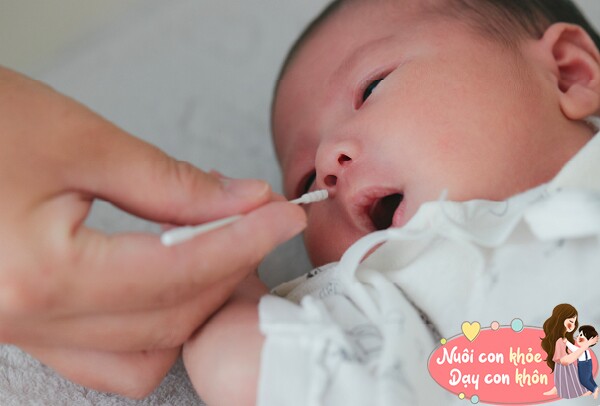
A baby’s nasal cavity is short, and the mucous membrane is delicate.
If excessive mucus is affecting the baby’s breathing, parents can use a saline solution to moisten and soften the mucus. This helps maintain moisture in the nasal mucosa, providing relief to the baby.
After applying the saline solution, wait a few minutes for the mucus to soften, then gently use a cotton swab to roll it out. However, it’s essential to exercise caution when using cotton swabs and only clean the outer parts of the nose to avoid damaging the delicate mucosa.

Private Parts
A baby’s genital area has self-cleaning capabilities. Over-cleaning can disrupt the acid-base balance and increase the risk of infections. The sensitive mucosa in this area should be protected from unnecessary interference, as excessive intervention can lead to irritation and inflammation.
When cleaning a baby’s private parts, simply rinse with warm water and avoid using soap or other cleansing products.
Warm water is the best choice as it effectively cleanses without drying out the skin or stripping away the body’s natural protective layer. Soap and detergents often contain chemicals that can irritate sensitive skin, leading to issues like redness, itching, or infection.
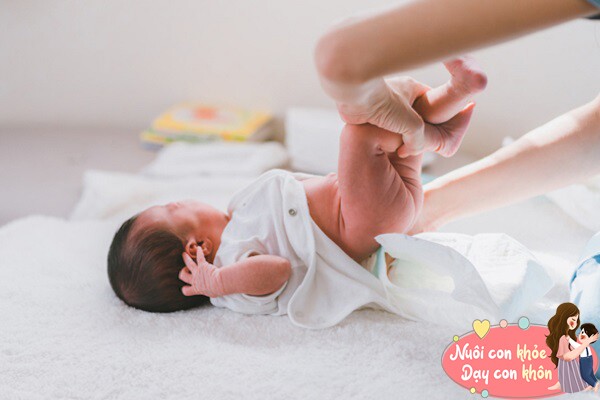
Use breathable and absorbent diapers to maintain hygiene.
Additionally, parents should pay attention to hygiene during diaper changes. Ensure that diapers are changed frequently and not left soiled for extended periods, as this can create an environment conducive to bacterial growth. Choose diapers made from breathable and absorbent materials to maintain optimal hygiene.

Belly Button
After a baby’s umbilical cord falls off, a navel pit forms, which can easily collect dirt and debris. However, over-cleaning the belly button can irritate the stomach, leading to symptoms like stomach pain and diarrhea. This occurs because the mucosa in the navel pit is sensitive and easily irritated, and excessive interference can remove the body’s natural protective layer.
Typically, it’s sufficient to keep the belly button dry and clean. After bathing, gently pat it dry with a clean cotton swab, avoiding the use of harsh chemicals or cleansing products.
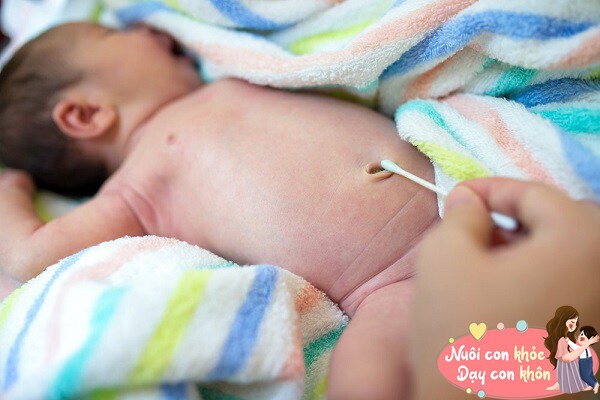
After bathing, gently pat the belly button dry with a clean cotton swab.
When caring for infants, parents should practice moderation. Excessive focus on hygiene can make the baby uncomfortable and impact their psychological well-being. Instead, create a safe and comfortable environment for the child, where hygiene is just one aspect of their daily care routine.
“Supercharge Your Day: 7 Morning Habits for a Stronger Immune System”
The morning is prime time to kickstart your day with a powerful combination of protein, probiotics, and hydration. Add in some exercise and a dose of natural sunlight, and you’re well on your way to a healthier you. But don’t forget the importance of a good night’s sleep; it’s the foundation for a robust immune system.






























